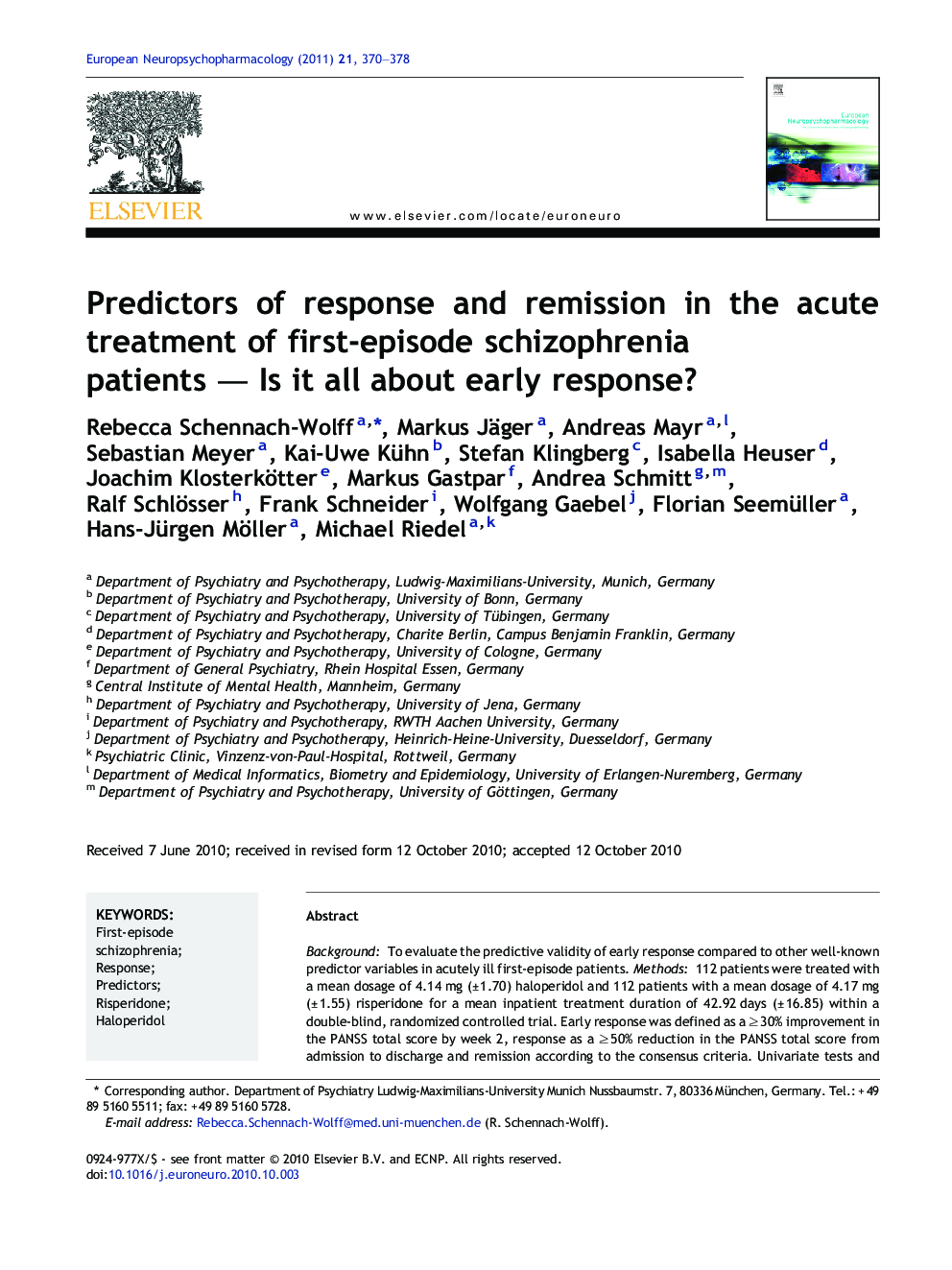| Article ID | Journal | Published Year | Pages | File Type |
|---|---|---|---|---|
| 321873 | European Neuropsychopharmacology | 2011 | 9 Pages |
BackgroundTo evaluate the predictive validity of early response compared to other well-known predictor variables in acutely ill first-episode patients.Methods112 patients were treated with a mean dosage of 4.14 mg (± 1.70) haloperidol and 112 patients with a mean dosage of 4.17 mg (± 1.55) risperidone for a mean inpatient treatment duration of 42.92 days (± 16.85) within a double-blind, randomized controlled trial. Early response was defined as a ≥ 30% improvement in the PANSS total score by week 2, response as a ≥ 50% reduction in the PANSS total score from admission to discharge and remission according to the consensus criteria. Univariate tests and logistic regression models were applied to identify significant predictors of response and remission.Results52% of the patients were responders and 59% remitters at discharge. Non-remitters at discharge were hindered from becoming remitters mainly by the presence of negative symptoms. Univariate tests revealed several significant differences between responders/non-responders and remitters/non-remitters such as age, severity of baseline psychopathology as well as the frequency of early response. Both early response (p < 0.0001) and a higher PANSS positive subscore at admission (p = 0.0002) were identified as significant predictors of response at discharge, whereas a shorter duration of untreated psychosis (p = 0.0167), a lower PANSS general psychopathology subscore (p < 0.0001), and early treatment response (p = 0.0002) were identified as significant predictors of remission.ConclusionTogether with the finding that early response is a significant predictor of response and remission, the relevance and predictive validity of negative and depressive symptoms for outcome is also highlighted.
